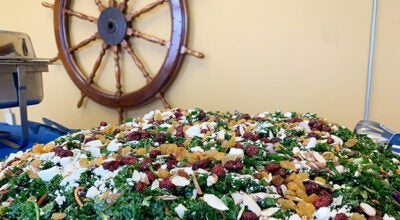Hurricane Season and the risk for potential scams
Published 8:35 am Thursday, August 13, 2015
By Ken Paxton
While forecasters are predicting a relatively quiet hurricane season this year, Texans should remain alert and protect themselves against scams that could occur the next time a major storm hits. Con artists are always all-too-ready to capitalize on the misfortune of others in the aftermath of a hurricane.
Shady individuals, often from out of state, may go door-to-door offering to help homeowners with repairs while actually seeking opportunities to scam unsuspecting victims. Before doing business with anyone, be sure to do your homework to determine if the individual or company is legitimate and registered to do business in Texas. Never rush into signing a contract or sign a contract with blanks or missing information. Never pay up-front for promised work. Always secure the terms of any warranty work in writing and write down the license plate number of the salesperson.
If the solicitor is required to have a license, the Texas Department of Licensing and Regulation or other state regulatory agency can let you know if the person or company you plan to hire has an active license and is authorized to conduct business in Texas. Only hire someone who is appropriately licensed and bonded and know that, under Texas law, the door-to-door seller must advise you orally and in writing that you have a right to cancel the sale within three days. The Better Business Bureau is also an excellent resource to find out how long an individual or company has been in business and if there are any complaints.
Scammers may also seek to take advantage of the kindness of others by providing bogus charitable opportunities purported to help victims while actually helping themselves to other people’s hard-earned money. Before donating, investigate the charity by visiting www.charitynavigator.org and peruse the tips for donors at the Better Business Bureau’s site – www.give.org. Send your money directly to your charity of choice, rather than through a third-party, to ensure that your donation is actually going to assist the people you intend to help.
Price-gouging is another problem that often results after a natural disaster. Price gouging is illegal, and, as a result, vendors are prohibited from charging excessive rates for necessities such as drinking water, food, batteries, generators, towing, clothing, medical supplies, lodging repair work and fuel after the governor declares a disaster. A disaster declaration triggers stiffer penalties under the Texas Deceptive Trade Practices Act. If you believe you are a victim of price gouging, let the seller know kindly but firmly about your concerns. If you are unable to resolve the issue, file a complaint with my office.
Putting one’s life back together after enduring the devastation of a natural disaster is challenging. Fortunately, my office is here to protect those seeking to rebuild. If you believe you are a victim of a scam or fraud in our state, I encourage you to file a complaint at www.texasattorneygeneral.gov or call my office’s consumer complaint hotline at (800) 252.8011.
Ken Paxton is the Texas Attorney General





